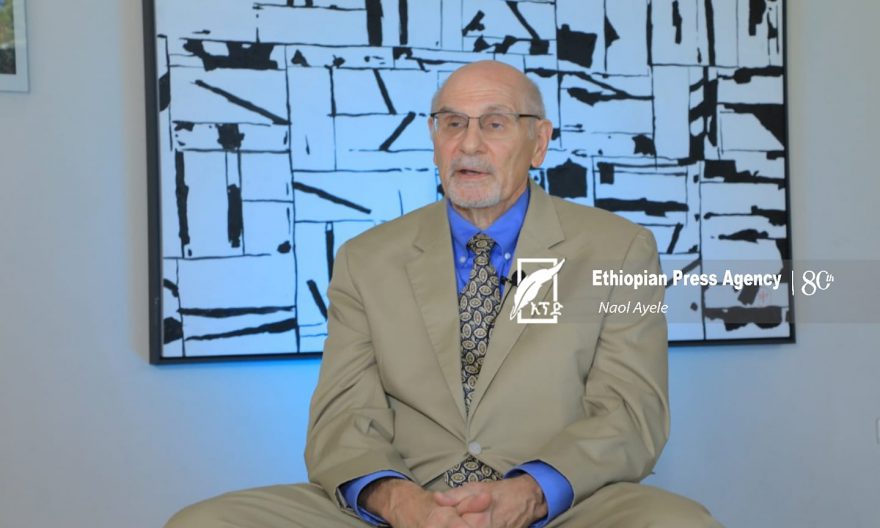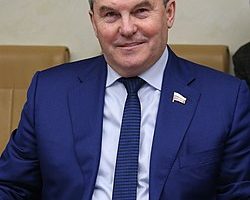
BY ZEKARIAS WOLDEMARIAM
Laurence Freeman is an American Political Economic analyst for Africa. He created the website entitled www.laurencefreemanafricaandtheworld.com He has been lobbying for economic interventions that liberate Africa from poverty and suggesting ways that African policy makers should adopt in order to sustainably address the economic problems of Africa. Among them, he stood as strong proponent of focus on energy and infrastructure development which can speed up the industrialization, job creation … etc in Africa and cut poverty significantly.
He argues that the west, including his country, America should follow the steps or approaches of the far eastern countries like China and India in collaborating with Africa in its development endeavors.
The Ethiopian Herald has had a brief discussion with Freeman to elaborate on his ideas about Africa’s political economy and the recently held US Africa leadership summit. Have a nice read!
To start with, could you tell us how you started your work of ‘political economic analyst for Africa’? And how long have you been working on?
Well, so it’s a long story, goes back to my early years in high school in college, which is 50 years ago, when I started thinking about Africa. And then I got involved in various political works in the United States. And I started thinking about Africa, again, around 1990 and writing about it and lecturing on African history and ended up with traveling to Nigeria in 1994. And then, since then, I’ve been in Nigeria dozen times, and Sudan, Mali, Chad, Cote d’Ivoire, and many times to Ethiopia. So, maybe I have paid 20, 25 or 30 visits to Africa over the last couple of decades.
What were the challenges you faced throughout those years, while working as political economic analyst for Africa? And how were you trying to address them?
Well, one of the big questions is that people not just in Africa, because my country as well, United States, people tend to think on a small level. And I tried to think on a big level, people accept the axioms of what the accepted public opinion is of the day. And I reject those axioms. And I always try to come up with new ideas that could provide a solution to the problem. For example, in Africa, there is no reason for them to be in hunger, and poverty, yet there is a massive hunger and poverty.
There’s no reason for African countries being poor spending USD 35 billion to USD 45 billion of food each year, I threw methods that I learned from one of the founders of my country, Alexander Hamilton, who was the first Treasury Secretary on the George Washington, I learned from him economic policies, which if implemented, we could eliminate hunger and poverty in Africa, probably within a generation. Okay, now, that’s just one of the problems. There’s also many other problems that Africa faces that I addressed in my work on infrastructure, like the lack of electricity in the continent of Africa, it’s literally killing Africans every day that there’s no electricity. And Ethiopia is trying to solve their problem. One is the grand Ethiopian Renaissance dam, which, unfortunately, is not supported enough by the rest of the world.
Does it mean countries like Ethiopia, need more support for developing electric power?
Well, look at what the current reality looks like, probably less than 100,000 megawatts for over a billion people in Sub Saharan Africa, and South Africans have about half of that. So there’s no electricity, it doesn’t really exist. And without electricity, you can’t have an industrialized manufacturing society; it gives 600 million people without access to grid electricity. And I want to change that I’m very strong supporter of nuclear power, which could help solve that problem. I want to increase the power capability of African nations. So, they have abundant and easy accessible electricity.
Without that African countries won’t develop; you need electricity for manufacturing, you need electricity for domestic purpose, you need electricity, for medical purposes, to light up schools, to light up libraries. So this is one of the biggest deficits being experienced in Africa. There is a serious deficit in Africa in this regard. Electricity also promotes the program for high speed rail network across the country. That’s a very essential element as well, connecting all the cities, all the ports by rail, with increased inter trade inside Africa, maybe six or seven times of what is now which is very minimal. African nations do not need to be poor. And they need assistance in terms of long term credit to invest in the type of infrastructure projects they needed.
And let’s come to the US-Africa Summit 2022. What were your expectations?
Well, I know a couple of things. I don’t know everything. One: The United States, the Biden Administration, has figured out that the United States has lost significant influence in Africa. China has made impacts primarily through their economic development policy. The other thing is that the African nations no longer jump on to the wishes of the West. And I think that the Western governments, particularly the United States, were shocked early this year, when two votes took place at the United Nations. And both those votes, the majority of African nations did not support the sanctions against Russia, which I didn’t support either. And I think that’s the reason that Secretary Anthony Blinken arranged his trip to South Africa, Rwanda and the Democratic Republic of the Congo, in August of this year, is trying to repair some of the damages, but it didn’t work. The three countries he met with did not provide him
with, let’s say, robust diplomatic support. I think Biden is going to announce at the summit, it’s pretty definite, that he will support the African Union joining the G-20. Now, there’s something African nations are demanding, which is fine, but he’s doing that because the United States is on the defense. The other thing United States is going to do is they’re going to try to introduce the African leaders to the private sector. The problem is that the United States itself is not offering what we called deliverables, it’s not giving anything, and it’s going to introduce the private sector to Africa as if they need introduction.
The problem with this policy is that they don’t do the key thing the United States could do. If they understood how to develop nations in Africa, the way I do, we will set up our funds, credit lines, or funds targeted for building infrastructure in Africa, because without infrastructure, nothing is going to work. And the private sector is not going to build that infrastructure. They’re not interested in it. They don’t have the capacity to do it. But they can’t initiate it. And they don’t have the money to do it. But they want to make money. And the example I use is what Franklin Roosevelt did.
When he came into office in my country in 1933, we were in a full scale depression, he mobilized the power of the government, public sector credit, to build massive infrastructure, United States had turned around the United States, and actually prepared us to win the war in World War II, because we built the factories. I’ve been working with a number of Africans to build an African Infrastructure Development Bank that is that would lease credit only for infrastructure projects. Now, infrastructure projects take five 7 to10 years in some cases. Therefore, you don’t want to charge a high interest rate when a low interest rate 2 to 3 per cent is more advantageous. The Chinese are doing that in some of their projects. That’s what we should be doing. We’re not going to do that. We’re going to try to get some big
headlines, like the African Union will try to renounce some big wingding deals, and everybody will try to feel good that the United States is finally helping Africa. But I don’t think the substance is going to be that strong. And that’s why I’m here in Ethiopia and not in Washington, because I think I could do more good here than I can there in Washington, My country has lost its vision for development. And so they don’t listen to me as much as they should.
What about the stance on the side of African countries? What should we expect them to just to discuss on this summit?
Well, first of all, this is the first summit that US has had with African countries since 2014. So it’s eight years. That’s a long time. Secretary Blinken has made three trips to the continent. President Biden hasn’t made any, but he said he would. But then I think the African countries will be happy to be meeting if they do get a chance to meet with the President, to meet with government leaders, to meet with people in the private sector. And maybe some deals will be struck, but they won’t be of the quality and type that is needed. I don’t think anybody’s going to say anything negative not to the United States, probably not while they’re in Washington.
When they go back home, they may be more frank and honest. I’m not expecting great things. I hope they do occur. But I do expect that the administration will put up as much positive news as they can. Because they’re trying to really capture the influence they’ve already lost on the continent. And there’s no question. I don’t care what they say publicly. They’re defensive and panicking. And this summit is a panicky move to try to recapture their influence, which Russia and China have undermined and also in the turkey have also been involved in development in the continent.
You mean that the African countries should push for tangible supports that back their development?
Absolutely! They have to tell the West to stop trying to control their energy. You have the conference COP 27, I think they’re trying to tell African countries not to use your coal, oil, gas, allegedly, because that is going to cause the carbon dioxide that was destroying the environment, which is not true. And but we can do that. So you’ve seen an increase of desperate moves by European countries for more oil and gas, and even coal contracts because of the loss of gas coming from Russia.
So they are expanding their efforts for these contracts. Diametrically opposite to that and they tell African countries to refrain from using their resources in the name of destroying the planet with carbon dioxide. And this has already been rejected by a number of African countries, South Africa, has rejected it. Nigeria has spoken out against it. Mo Ibrahim has spoken out against it. The fact is that African nations should be treated as sovereign nations controlling their own policy. The US side is saying plainly that we are giving you democracy, human rights… No one else will do that for you.
We are going to support good governance. But for me, the most fundamental human right is— the right to live. And ‘the right to live’ requires ‘the right for economic development’. And that’s where the West and the US in particular fall short of delivering. If you are concerned about human rights, then you will build electricity and roads and rail in Africa. If you don’t do that, those are empty words. No, I think there is going to be a lot of empty words.
My next question is related to the point you raised earlier, on nuclear power for Africa, how do you think this could be implemented?
Well, you know that there’s one nuclear power plant on the entire continent— that is in South Africa. That speaks for itself for there is a noticeable problem The South Africans a while ago, developed what was called a nuclear was a pebble bed small nuclear reactor. And there’s a whole technology now, to build 200 to 400 megawatts, small reactors, traditional reactors have been much larger and 1000 megawatts. If we start building these which are perfectly feasible, we can then begin hooking them into the current grid in various countries, India, for example, Russia are working on floating nuclear power plants, that you put it on a barge, and you can bring it into the central structure in a port area to the grid.
Now there are about 17 African nations, which is almost a third that are in one stage or another of looking into nuclear energy, some are looking at feasibility projects, some are making applications to the Atomic Energy Agency. Others are in discussions, Ghana, Nigeria, for example, even Ethiopia is looking into South Africa, looking to expand several 1000 megawatts of power. And Egypt, as we talk is working with the Russians to build two to four nuclear power plants in Egypt. So the process has started, it should be accelerated. And we can build larger plants to one to 1000 megawatts, and the small 200 to 400 megawatts.
But this would be a transformation because once you bring in a new source of energy; you also bring in a new technology. And when you bring in a new technology, you transform your economy. So if we get nuclear-based economy in Africa, this will be a revolution in economics. And then that is the preparation for fusion power. This is fusion; fusion power is more advanced, as even more powerful economy. And we are bringing a whole higher level of technology. So you keep raising your technology platform. And that technology platform then changes and transforms your entire economy.
THE ETHIOPIAN HERALD 17 DECEMBER 2022





